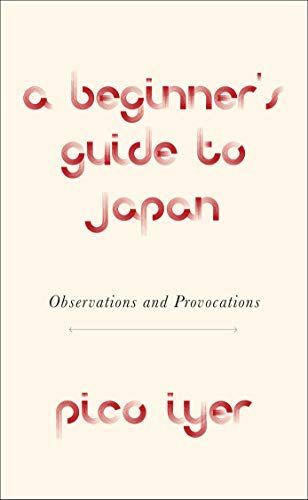
A Beginner's Guide to Japan Observations and Provocations
From the acclaimed author of The Art of Stillness--one of our most engaging and discerning travel writers--a unique, indispensable guide to the enigma of contemporary Japan. After thirty-two years in Japan, Pico Iyer can use everything from anime to Oscar Wilde to show how his adopted home is both hauntingly familiar and the strangest place on earth. "Arguably the world's greatest living travel writer" (Outside). He draws on readings, reflections, and conversations with Japanese friends to illuminate an unknown place for newcomers, and to give longtime residents a look at their home through fresh eyes. A Beginner's Guide to Japan is a playful and profound guidebook full of surprising, brief, incisive glimpses into Japanese culture. Iyer's adventures and observations as he travels from a meditation-hall to a love-hotel, from West Point to Kyoto Station, make for a constantly surprising series of provocations guaranteed to pique the interest and curiosity of those who don't know Japan, and to remind those who do of the wide range of fascinations the country and culture contain.
Reviews
Sebastian Stockmarr@stockmarr
Cole Slinker@coles
Nina Ding@onomatopoesie
Arun@arunbab
Erin Peace@erinpeace
Toby Fehily@tobyfehily
Highlights
Nina Ding@onomatopoesie
Sebastian Stockmarr@stockmarr
Sebastian Stockmarr@stockmarr
Page 113
Sebastian Stockmarr@stockmarr
Page 78
Sebastian Stockmarr@stockmarr
Page 69
Sebastian Stockmarr@stockmarr
Page 67
Sebastian Stockmarr@stockmarr
Page 62
Sebastian Stockmarr@stockmarr
Page 60
Sebastian Stockmarr@stockmarr
Page 57
Sebastian Stockmarr@stockmarr
Page 55
Sebastian Stockmarr@stockmarr
Page 16